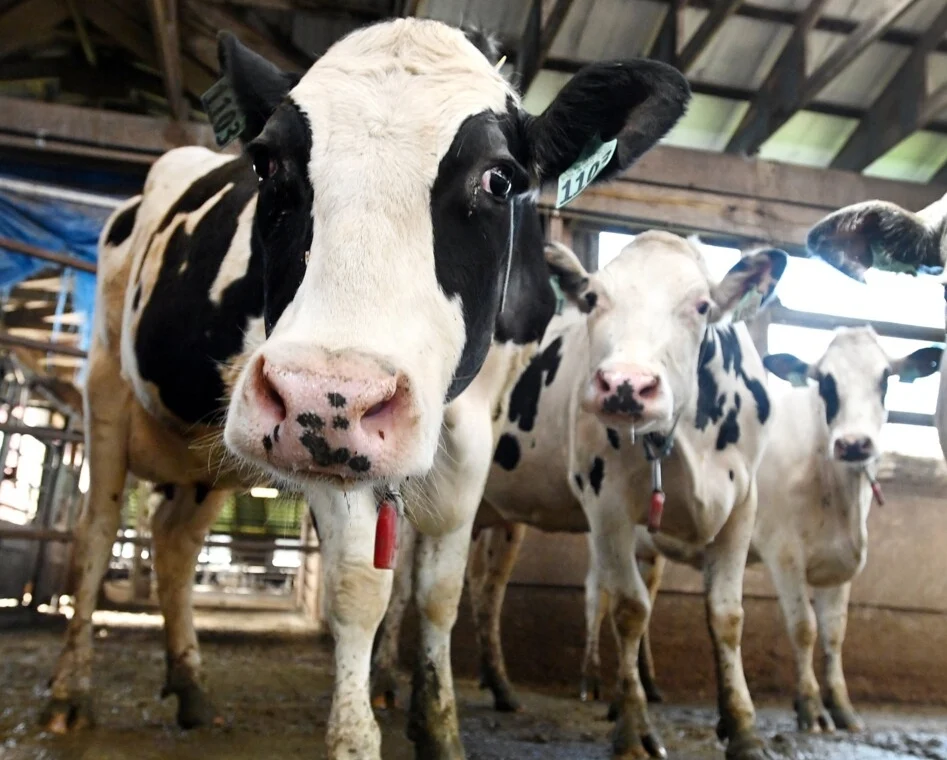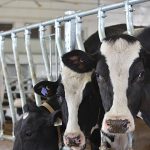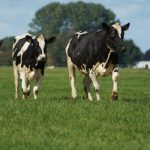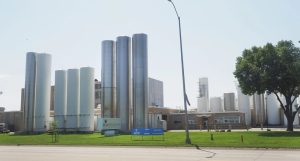
On the brink of collapse, Maine’s $2.7 billion dairy industry is asking lawmakers for a bailout this session to avoid another round of farm closures.
Over the last two years, Maine has lost 25% of its dairy farms. Only 161 remain in operation. Farmers blame runaway electricity, fuel and fertilizer costs, and skyrocketing interest rates on farm loans. The heritage industry is approaching the point of no return, they warn. If it shrinks much more, the industry won’t be able to support the network of fertilizer, feed and farm equipment suppliers and truck drivers needed to sustain any dairy operation.
It can’t come soon enough for Libby Bleakney, a fifth-generation dairy farmer in Cornish who worries about overcoming what she calls the squeeze.
“Our dairy industry in the state is facing some very challenging times,” said Bleakney, who milks 250 cows at Highland Farms. “Everywhere we turn, we are seeing increases in electricity, fuel, grain costs, labor costs, bedding, fertilizer costs and rising interest rates, and couple this with the milk price forecast going down every month for the rest of this year. We are in a terrible squeeze.”
Dairy farmers like Bleakney are asking state lawmakers to help with a financial bailout to keep the industry survive. On Wednesday, the Legislature’s Committee on Agriculture, Conservation and Forestry unanimously backed a bill from Rep. Bill Pluecker, I-Warren, to make a one-time $5.5 million pandemic volatility payment to Maine milk producers. The funding would be divvied up by milk production, paying a dollar for every pound of milk a farm produced.
But it’s uncertain if there is enough political support to actually fund the bill. Many bills that have earned unanimous support from their originating committee and secured comfortable margins in both the House and Senate never make it off the table at the appropriations committee. That is the committee that decides which bills get funded, an uphill battle in any legislative session but especially one that is consumed by tough budget negotiations like this one is shaping up to be.
But Pluecker is confident this bill has the bipartisan support it needs to be fully funded despite failed attempts to add it to Gov. Janet Mills’ supplemental budget.
“Dairy farming is Maine,” Pluecker said Wednesday after the committee vote. “We’re not going to let that die.”
Although there has been some grumbling from Maine potato farmers, who note farmers of all kinds are struggling, the Maine Department of Agriculture, Conservation and Forestry has rallied behind the idea of a bailout, with the deputy commissioner telling the committee that it would be difficult to overstate the importance of dairy farms as an anchor to Maine’s rural and farm communities or the administration’s alarm over the rapid rate at which dairy farms are closing.
Last year, Maine dairy farms produced 554 million pounds of milk from about 26,000 cows, according to the U.S. Department of Agriculture. Despite the 3.1% decline in production from 2021, Maine still produces enough milk to meet its own milk demands – based on the assumption that the average person drinks 300 gallons of milk a year – but not enough to meet its in-state demand for milk products, like butter, cheese and yogurt.
Even in its weakened state, Maine dairy farms pay out more than $710 million in wages to 4,700 employees and support another 10,000 indirect employees, bringing the total economic impact of the industry to $2.71 billion, according to the Maine Milk Commission. In total, the industry pays about $124 million in taxes to Maine and $147 million to the federal government, data shows.
The long-term national outlook for the industry is decidedly mixed, according to the American Farm Bureau Federation. Milk prices are at an all-time high, causing net farm income to increase 7.2% from 2021 to 2022, but not enough to make up for a 19% jump in production costs. Fertilizer and fuel costs are up 50% and total feed costs are up 17%, according to federation data.
But it’s the 41% increase in interest rate costs that has most farmers running for cover, said Newburgh dairy farmer Heath Miller, who manages a 200-head herd at Green Valle Farm.
“Those are bills you’ve got to pay,” Miller said. “Farms basically run on loans, lines of credit. We can find ways to lower other costs – switch to a cheaper brand, delay a purchase, improve efficiency – but there’s no way to lower the interest rate, not right now. It’s the bank, so we pay. But with inflation, we’re paying so much more.”
TOWERING CHALLENGES
Andy Smith of Milkhouse Dairy in Monmouth, which milks 40 Jersey cows as well as beef and pork on 250 acres of hay and pasture, said organic dairies like his are facing towering challenges and they need time to work out a permanent solution. At the peak of the season, Milkhouse employs 10 people at the farm and its state-licensed creamery and is one of only two organic dairies left in a town that used to have many.
“I have never experienced the anxiety and despair that is felt in our community today,” said Smith, president of the Maine Organic Milk Producers. “The dairy industry is in the midst of an ongoing crisis, including the organic market, and without intervention, I fear we will see the collapse of the Maine organic dairy sector. While the long-term fixes lie in regulatory changes at the federal level, it is my hope that you all will support issuing emergency funds to help buy our industry time.”
Smith cited the intangible benefits of keeping the dairy industry afloat in Maine. Not only are they the anchor of the state’s agricultural economy, but they keep hundreds of thousands of acres of farmland out of development and contribute to the beauty of the state, which is valued by residents and the millions of tourists who come to Maine to enjoy its bucolic countryside along with its rocky shores. If dairy farms keep closing, hunters, hikers and snowmobilers will lose access to that open space, he said.
“Without emergency relief, more will go under in 2023,” Smith warned.
Although the bill is touted as a bailout for dairy farmers, it would really help everyone in the dairy supply chain stay afloat.
Central Maine Dairy Equipment in Skowhegan is an example of a downstream business that would benefit from emergency payments to Maine dairy farmers. The business sells, installs and services refrigeration, electrical systems, milking parlors, barn equipment and just about anything else a dairy farm could need to stay in operation. Without farmers, manager Eric Saucier and his team of seven dairy technicians would be out of work.
“Without them, there would not be a Central Maine Dairy Equipment as we know it today,” Saucier said. “The vast majority of farmers don’t want to just survive, they want to thrive. They need a business that will attract the next generation to keep aspiring to feed our state. A thriving environment attracts talented people into our lane and makes agriculture more attractive in a world full of work opportunities.”























